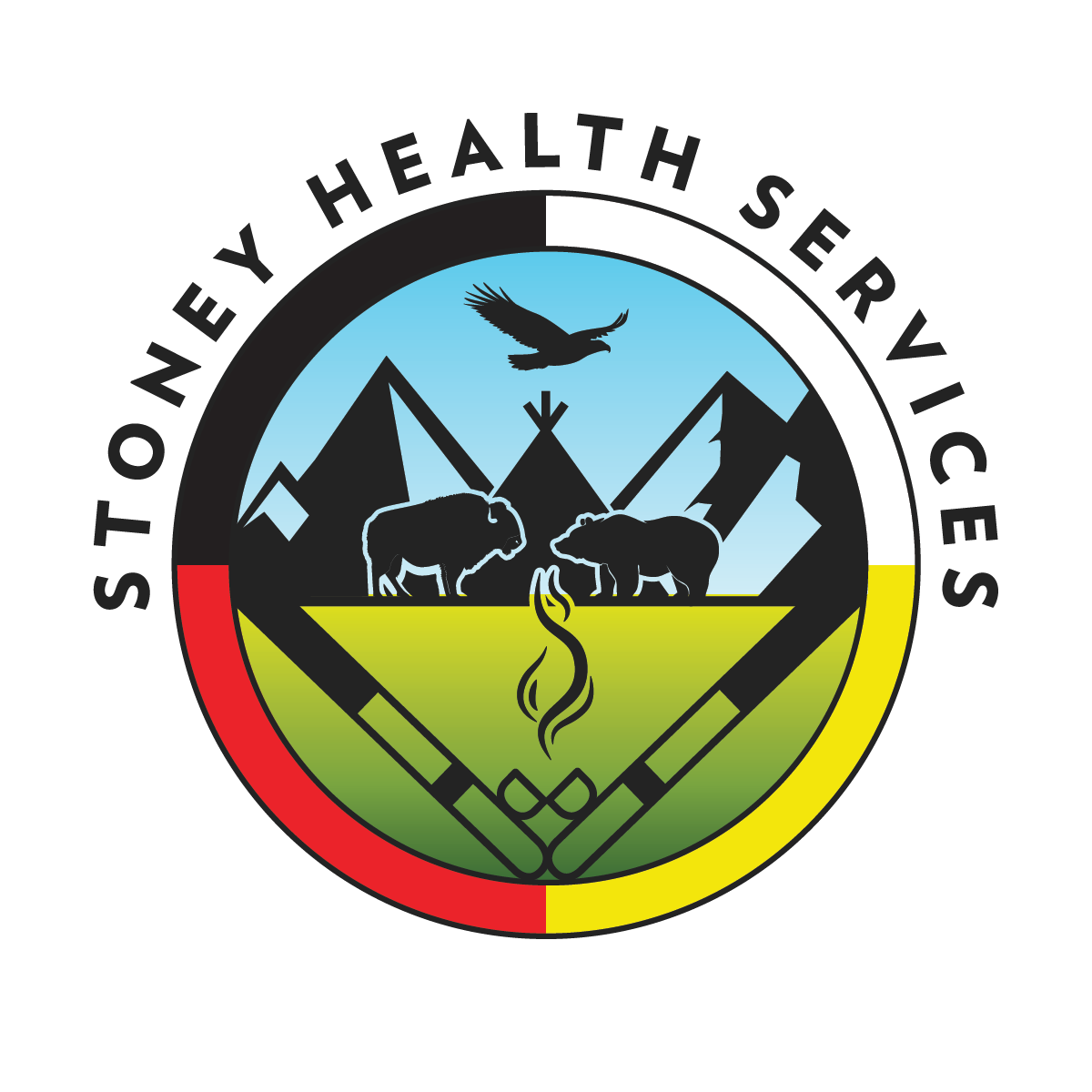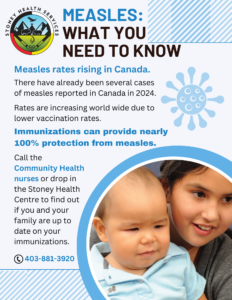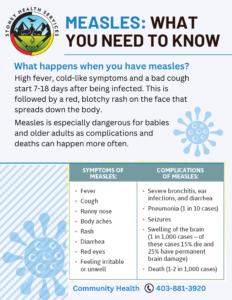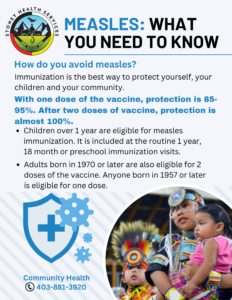Measles: What you need to know
Call Community Health @ 403-881-3920 if you have any questions or would like to check your family's vaccine status.
What happens when you have measles?
High fever, cold-like symptoms and a bad cough start 7-18 days after being infected. This is followed by a red, blotchy rash on the face that spreads down the body.
Measles is especially dangerous for babies and older adults as complications and deaths can happen more often.
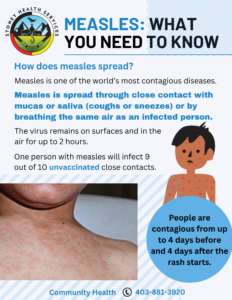
How does measles spread?
Measles is one of the world’s most contagious diseases.
Measles is spread through close contact with mucus or saliva (coughs or sneezes) or by breathing the same air as an infected person.
The virus remains on surfaces and in the air for up to 2 hours.
One person with measles will infect 9 out of 10 unvaccinated close contacts.
People are contagious from up to 4 days before and 4 days after the rash starts.
How do you avoid measles?
Immunization is the best way to protect yourself, your children and your community.
With one dose of the vaccine, protection is 85-95%. After two doses of vaccine, protection is almost 100%.
Children over 1 year are eligible for measles immunization. It is included at the routine 1 year, 18 month or preschool immunization visits.
Adults born in 1970 or later are also eligible for 2 doses of the vaccine. Anyone born in 1957 or later is eligible for one dose.
